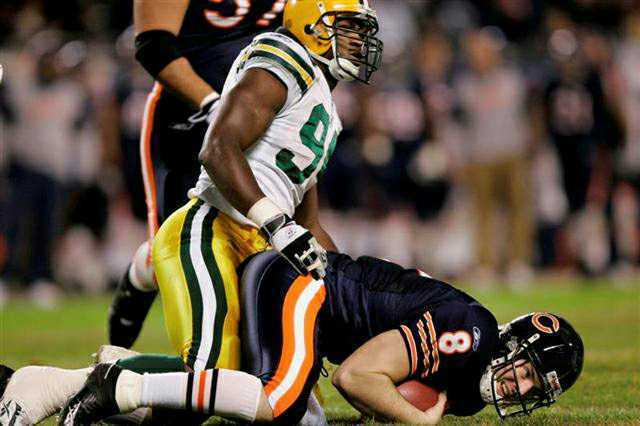Lake Superior State University recently released its latest list of Banished Words; that is, words they’ll openly judge people for using.
But are the words really worthy of banishment? Surely, Shakespeare and Woolfe are rolling in their graves, and Nicki Minaj is desperately flipping through her thesaurus, cursing those determined to taint words, what Dumbledore calls “our most inexhaustible source of magic.”
With Dumbledoreism in mind, here’s a small sampling of reasons LSSU’s banished words are actually useful, and ways to use them.
Blowback

“Officially” referring to unexpected consequences to corporate or top-secret actions, some feel “reaction” should be sufficient. All I can think is the discomfort stems from the basic idea of “blowing,” and “backing”: such activities are all about numero uno. So, bottom line is, doesn’t the concept of “blowback” really just refer to reciprocity? Generosity? Giving? That, friends, is a positive message.
Man Cave

Whoa. Hold up. How can such a gigglesnort-inducing word possibly be seen as useless? Thanks to contemporary feminist and queer movements, “man cave” doesn’t only refer to a pizza-box-and-TV-Guide-built burrow anymore: it’s also a really great euphemism. Therefore, this phrase should stick around to create a dialogue on what makes a man cave a man cave, why men “need” man caves, and how much fun it is to induce manxiety by making fun of owners of man caves.
Trickeration

Crafted by football analysts to describe a trick play, “trickeration” is the latest proof that jocks enjoy wordplay as much as they do ball-play. Um. Really, though, folks, why belittle the humanization of beefcakes via the most sacred of all nerdy hobbies? After all, The Bard, himself, invented hundreds of words that have stuck around. Who’s to say ESPN can’t be a breeding ground for modern-day wordsmiths?
Pet Parent

Contributors to LSSU’s List maintain this phrase is offensive to those who identify as “pet owners,” and not “pet parents“; apparently, they feel pet parents are accusing owners of being nothing more than slaveholders. But, to you owners, I ask this: when you think of a “pet parent,” don’t you imagine decade-old moo-moos, too-fluffy slippers, and frightened neighborhood children? Who’s the winner here, you or them? Ultimately, though, this title shouldn’t be banned simply because that guy/lady down the street is a staple to every child’s upbringing.
Shared Sacrifice

Sure, in the creepy-cult sense of the word, “shared sacrifice” might bring up all sorts of unsettling thoughts and commitments, but that doesn’t mean there aren’t any other possible uses: for one, Obama wants to give the 1% a kick in the pants; for another, there’s no way you’re going to live up to that New Year’s Resolution of cutting back on the ice cream if your significant other keeps his/her/hir own pints in the freezer.
But are the words really worthy of banishment? Surely, Shakespeare and Woolfe are rolling in their graves, and Nicki Minaj is desperately flipping through her thesaurus, cursing those determined to taint words, what Dumbledore calls “our most inexhaustible source of magic.”
With Dumbledoreism in mind, here’s a small sampling of reasons LSSU’s banished words are actually useful, and ways to use them.
Blowback

“Officially” referring to unexpected consequences to corporate or top-secret actions, some feel “reaction” should be sufficient. All I can think is the discomfort stems from the basic idea of “blowing,” and “backing”: such activities are all about numero uno. So, bottom line is, doesn’t the concept of “blowback” really just refer to reciprocity? Generosity? Giving? That, friends, is a positive message.
Man Cave

Whoa. Hold up. How can such a gigglesnort-inducing word possibly be seen as useless? Thanks to contemporary feminist and queer movements, “man cave” doesn’t only refer to a pizza-box-and-TV-Guide-built burrow anymore: it’s also a really great euphemism. Therefore, this phrase should stick around to create a dialogue on what makes a man cave a man cave, why men “need” man caves, and how much fun it is to induce manxiety by making fun of owners of man caves.
Trickeration

Crafted by football analysts to describe a trick play, “trickeration” is the latest proof that jocks enjoy wordplay as much as they do ball-play. Um. Really, though, folks, why belittle the humanization of beefcakes via the most sacred of all nerdy hobbies? After all, The Bard, himself, invented hundreds of words that have stuck around. Who’s to say ESPN can’t be a breeding ground for modern-day wordsmiths?
Pet Parent

Contributors to LSSU’s List maintain this phrase is offensive to those who identify as “pet owners,” and not “pet parents“; apparently, they feel pet parents are accusing owners of being nothing more than slaveholders. But, to you owners, I ask this: when you think of a “pet parent,” don’t you imagine decade-old moo-moos, too-fluffy slippers, and frightened neighborhood children? Who’s the winner here, you or them? Ultimately, though, this title shouldn’t be banned simply because that guy/lady down the street is a staple to every child’s upbringing.
Shared Sacrifice

Sure, in the creepy-cult sense of the word, “shared sacrifice” might bring up all sorts of unsettling thoughts and commitments, but that doesn’t mean there aren’t any other possible uses: for one, Obama wants to give the 1% a kick in the pants; for another, there’s no way you’re going to live up to that New Year’s Resolution of cutting back on the ice cream if your significant other keeps his/her/hir own pints in the freezer.
